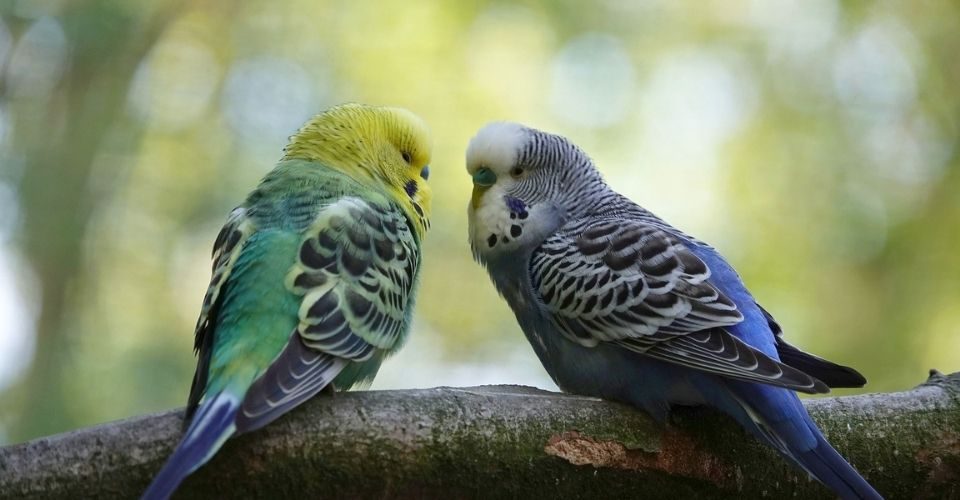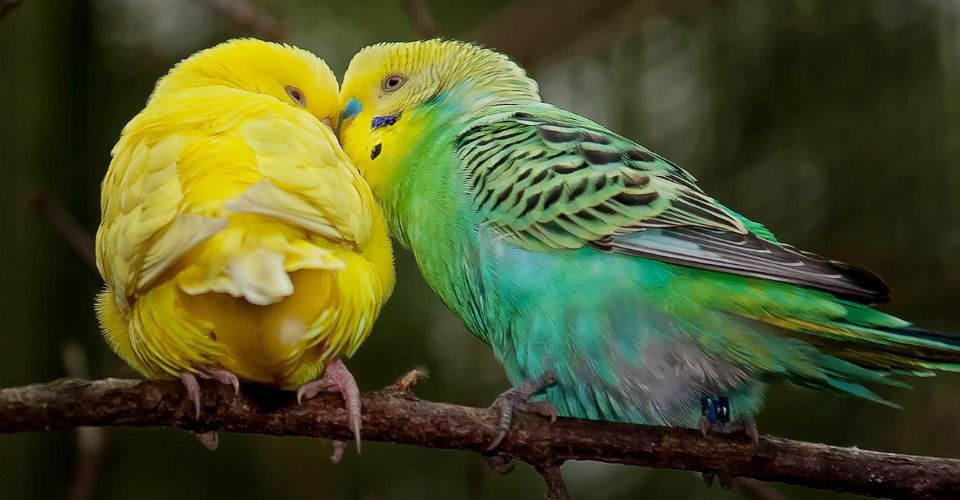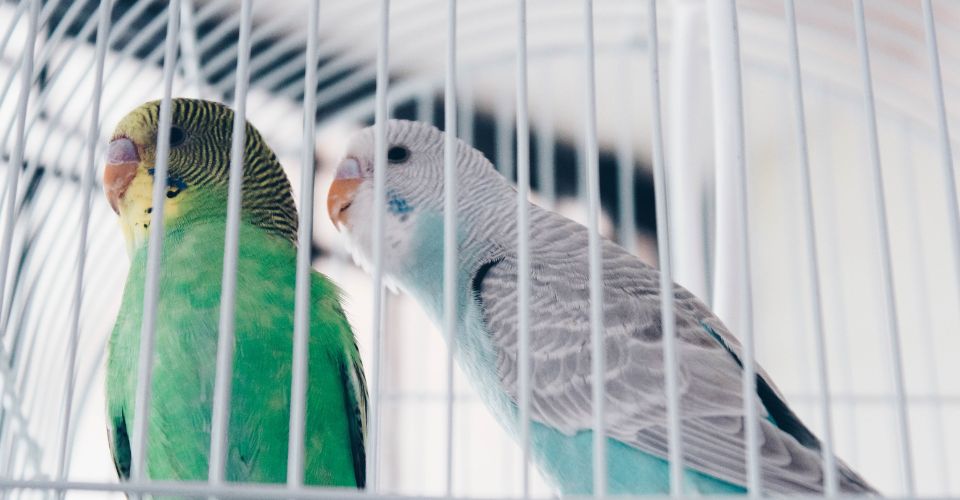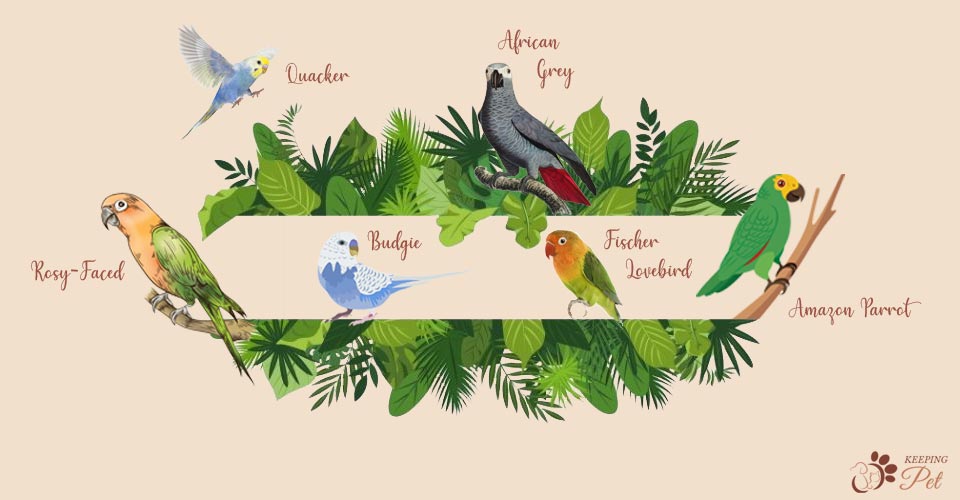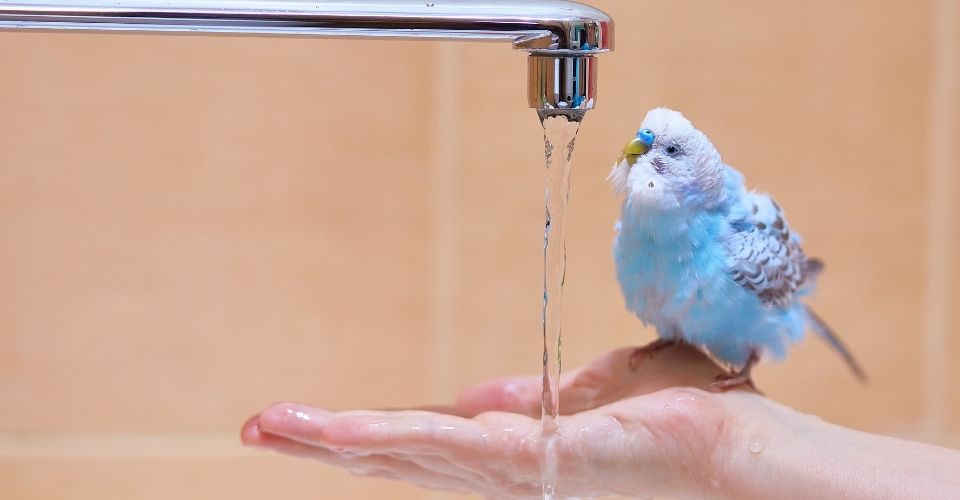Being too skinny or being overweight can be alarming for humans. It suggests that either we have a poor diet or any underlying disease that is causing such changes in our bodies. Like humans, a difference in our pet’s weight indicates the same. It is better to know the ideal weight of your pet and to plan their diet accordingly.
Parakeets are small and fun-loving birds. Their small size makes it difficult to understand that whether they are losing weight or gaining it. To acknowledge the changes in your budgie, you need to keep a closer look at your pet’s body.
The weight of parakeets depends on their breeding and age. In this blog, we will guide you with information that every parakeet owner should know—how much your budgie should weigh ideally. However, we advise you to consult a veterinarian for further and deeper guidance and analysis.
How Much Does a Healthy Parakeet Weigh?
A healthy parakeet should weigh between 1.1 – 1.4 ounces, which is equal to 25 – 36 grams. Less or more weight than the defined range may indicate underlying health problems. If your bird’s weight is under 1.1 ounces, then it signals malnutrition and, if the weight is over 1.4 ounces, it shows your bird pet has obesity.
It is best to weigh your bird around three times per week and at the same time of the day to notice any weight changes. Weight can vary at different times during the day. Try to weigh your pet bird in the morning before breakfast. They are tiny creatures, so a slight variation in weight may lead to unreliable data.
As a healthy diet and exercise is key to good health in humans, believe it or not, pets need to exercise too to stay healthy. Of course, they don’t do push-ups or squats like us, but you can place a ladder or ropes in your bird’s cage to encourage the movement of muscles that includes climbing, taking a walk, etc.
Parakeet Weight Chart
Parakeets tend to grow quickly and very rapidly. Within 40 days of their fledgling, enormous changes can be seen in their bodies. They develop feathers, colors on the body, wings, and muscle tones, etc., during this period. They seem to grow within the first month. By 40 days, the birds are fully mature and thoroughly feathered.
Read: What Do Parakeets Eat?
| Age of Parakeets | Weight (in grams) | Size (in cm) |
| Fledgling – 3 days old | 2 grams | 2 cm |
| 3 – 5 days old | 2 – 4 grams | 2 – 3 cm |
| 6 – 9 days old | 5 – 7 grams | 3 – 5 cm |
| 10 – 12 days old | 7 – 9 grams | 6 – 7 cm |
| 13 – 19 days old | 10 – 15 grams | 8 – 12 cm |
| 20 – 28 days old | 16 – 22 grams | 12 – 16 cm |
| 40 days old | 25 – 36 grams | 18 – 20 cm |
How to Know If a Parakeet Is Overweight?
If your parakeet weighs more than 36 grams, then it indicates your bird is overweight. Obesity is common yet dangerous in birds and can lead to several diseases, such as fatty liver disease. It can even lead to the death of your bird if left untreated.
The most common method to weigh your bird is using a bird scale (easily available in any bird store), or even a food scale can be used to weigh. However, you can tell yourself that your bird is overweight by observing the following symptoms.
- Fats on non-feathered areas such as the neck or jaw are easily visible.
- Examine their breast muscles. If there is a layer of fats on the breast that may seem like extra cleavage over the chest muscles, it also signals your pet is overweight.
- Excessive panting after a short walk, flight, or even at rest is the symbol of obesity.
How to Treat an Overweight Parakeet?
It is quite common for birds to become overweight, and there is no need to panic. But if obesity is left untreated, it can cause other diseases and may lead to death. Many owners do not have enough information about their pet’s diet and feed them with human foods. It is extremely dangerous as human food contain nutrition for full-grown human—that is not healthy for small birds.
Food with high calories, such as pieces of bread or crackers, should not be treated to your pet birds. A healthy diet for parakeets includes the pellet, fresh vegetables, fruits, and nuts.
Exercise is important for parakeets to overcome obesity and to burn calories. The easiest way is to let your budgie fly outside its cage. Flying needs a lot of courage and proves to be a healthy exercise in birds.
If you cannot let them fly outside, then place your pet bird in big cages where they can have enough space to roam. Bird toys that include climbing or swinging are good alternatives. It will motivate your pet to keep moving around the cage.
How to Know If a Parakeet Is Underweight?
Lack of nutritional food and an unbalanced diet result in malnutrition. If the weight of a fully grown feathered budgie is below 25 grams, then your pet may be underweight.
Just as you can tell your budgie is overweight by looking at its chest muscles, a close look at its chest can also tell your pet is underweight. Gently run your fingers over the chest in the middle of the breast area of the parrot. If you can feel its breastbone easily (but not too prominent), then it signals your bird is underweight and requires a healthy diet. Untidy feathers and extreme laziness are also the signs of an underweight parakeet.
How to Treat an Underweight Parakeet?
Many diseases observed in pet birds have their basis in malnutrition. It is better to consult a veterinarian and treat underweight parakeets as soon as possible. The easiest way to help parakeets in gaining weight is by increasing the food they love. Include high-calorie food in their diets—such as nuts and sunflowers seeds.
Influence of Weight on Parakeet’s Health
If your parakeet is under or overweight, both cases are dangerous and need proper medical attention. Any abnormal changes in your pet’s body indicate that something is wrong and should be treated immediately.
Weight loss can signal nutritional concerns. However, diseases like enteritis, immune-suppressive disease, yeast infection, lymphoid leucosis, respiratory infections, etc., are also some vital causes of weight loss in parakeets.
The excessive gain in weight is also alarming and gives birth to many diseases such as fatty liver disease and obesity. Birds like parakeets store excess fats in the liver, and with time, the fat deposits increase. The accumulation of excess fats on the organ causes the liver not to work properly.
Both loss and gain in weight can be hazardous if not treated on time and can even lead to death.
Best Diet to Keep Parakeet Healthy
Either your pet bird lacks nutrition or takes in excess quantity, both conditions should be avoided. The best diet in parakeet is a balanced diet.
- You can purchase a healthy parakeet treat online or from any bird store. We recommend Kaytee Forti-Diet Pro Health Parakeet Food; it is available on Amazon, is naturally preserved, and enhances feather and skin health.
- Feed your pet bird with fresh fruits and vegetables but not more than 20 –
25 percent of the daily diet. Wash them properly and cut them into adequate pieces. Do not leave fruits or vegetables for a long time in the cage as they will get rotten, especially in summers.
- Also, keep in mind that some fruits and vegetables, such as avocado, are toxic and should never be given to your pet.
- Parakeets also enjoy eating mixed seeds. However, seeds are high in fats and carbohydrates, low in protein and essential minerals. Your pet’s favorite seeds should only be fed occasionally and should never be the diet alone
- Birds also hog on pellets. They may not consider it food at first but eventually will get used to it. Pellets should not be mixed with seeds but offered alone, especially in the morning
- You can also offer pieces of eggs and yogurt every couple of days
Final Words
Weight loss or gain is the first symptom of any disease and indicates that something is wrong with your pet. It is necessary to keep track of your pet’s weight and feed him accordingly. Pet health is the topmost priority of every owner. Any abnormal change in behavior or weight should not be ignored, and you should immediately consult your veterinarian.

